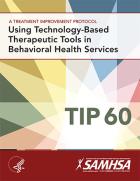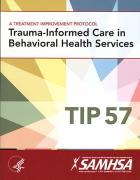This Advisory is based on TIP 55, Behavioral Health Services for People Who Are Homeless. It addresses the fundamentals of how providers and administrators can employ approaches to address the complex challenges of providing integrated treatment services to clients experiencing homelessness.
Dashboard: Filter Bricks
Main page content


This Advisory is based on TIP 60, Using Technology-Based Therapeutic Tools in Behavioral Health Services. It provides information on synchronous and asynchronous telehealth technologies for behavioral health treatment. Factors such as technology access and implementation are addressed.

This manual offers skills and resources to service providers working with people who are experiencing homelessness or at risk of homelessness. It outlines types of homelessness and stages of recovery, including substance use screening and supportive treatment. Access the literature review.

This manual assists clinicians with implementing technology-assisted care. It highlights the importance of using technology-based assessments and interventions in behavioral health treatment services. The manual also discusses how technology reduces barriers to accessing care.

This guide helps professional care providers and administrators understand the role of culture in the delivery of mental health and substance use services. It describes cultural competence and discusses racial, ethnic, and cultural considerations.

This manual helps behavioral health professionals understand the impact of trauma on those who experience it. The manual discusses patient assessment and treatment planning strategies. These strategies support recovery and the development of a trauma-informed care workforce.

This manual provides guidelines for administrators on addressing issues in outpatient treatment for alcohol and substance misuse. It discusses cultural competence, management and strategic collaborations, human resources, financing, and performance and outcomes improvement.

